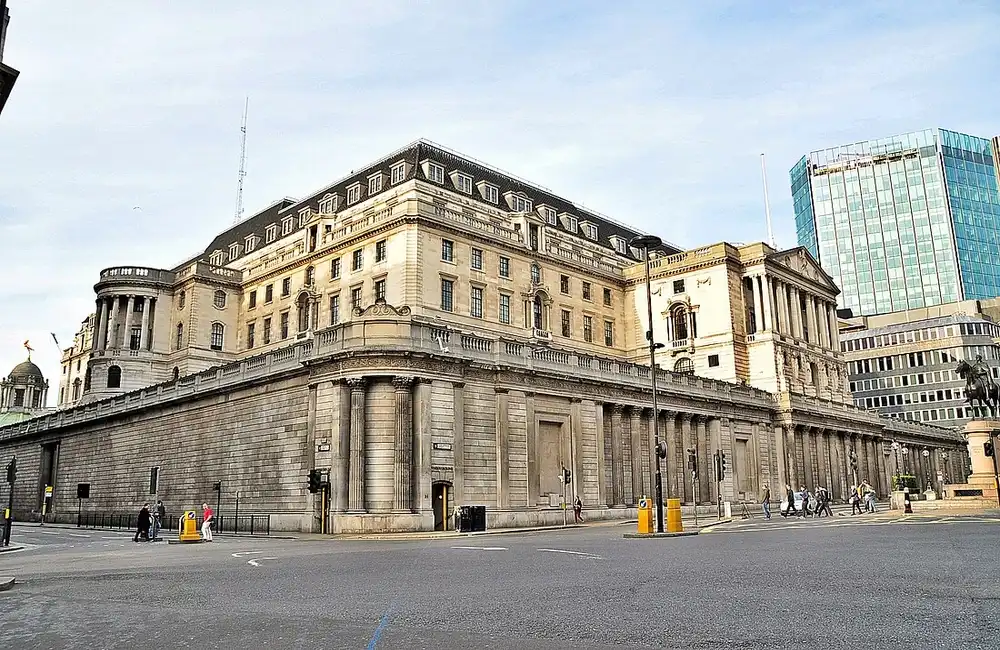The UK IPO market has hit its lowest level in over ten years. During Q1 2025 the London Stock Exchange hosted five IPOs which generated a total of £74.7 million.
Current IPO activity contrasts sharply with previous years and demonstrates a continual downward trend from its high point in 2021. The article provides an analysis of the driving forces behind the market shift and presents historical background before assessing future prospects for the LSE and UK investors.
Q1 2025 Overview
The London Stock Exchange witnessed just five company IPOs during its initial quarter of 2025. The sum of £74.7 million raised through IPOs indicates a severe decline from traditional historical fundraising benchmarks. The significant market contraction indicates wider market struggles which raise questions about London Stock Exchange's ability to remain globally competitive.
The first quarter of 2025 acts as a pivotal indicator of the underlying market problems affecting UK IPO activities when measured against the backdrop of recent economic volatility and investor sentiment downturns. An accurate understanding of this decline requires a comparison of the current data with historical performance metrics.
Historical Comparison (2015–2024)
This data depicts a decade of IPO activity on the LSE to provide essential insights into the current market decline.
- 2015: 93 IPOs
- 2016: 66 IPOs
- 2017: 106 IPOs
- 2018: 79 IPOs
- 2019: 27 IPOs
- 2020: 44 IPOs
- 2021: 122 IPOs
- 2022: 45 IPOs
- 2023: 23 IPOs
- 2024: 18 IPOs
The data shows market volatility clearly yet 2021 represents the peak of IPO activity with 122 listings. Following 2021's peak IPO activity marked by 122 listings the subsequent years saw a steep decline with only 18 IPOs recorded in 2024 and just five during the first quarter of 2025.
The consistent downward trend across consecutive years shows fundamental economic issues that exceed typical market cycle variations.
Analysis of the Downward Trend
From Boom to Bust
Record-low interest rates and a strong demand for innovative investments brought about a peak in 2021 through the entry of many tech and green energy companies into the market. Following the peak period the global economic environment transformed significantly which resulted in reduced enthusiasm for public listings.
Economic Uncertainty
- Interest Rates & Inflation: Global businesses find IPOs less appealing because rising interest rates alongside continuous inflationary pressures have made capital acquisition more expensive.
- Market Volatility: The ongoing war in Ukraine and trade conflicts between major economies have destabilised global stock markets and caused companies to delay their initial public offerings.
Global Competition
- US Market Dominance: Numerous tech and biotech firms prefer US exchanges like Nasdaq because they offer higher valuations compared to London.
- Emergence of Other Centres: The Hong Kong Stock Exchange alongside Saudi Arabia’s Tadawul represent key centers in Asia and the Middle East where IPO activity is expanding due to strong investor bases and beneficial regulatory environments.
Regulatory and Structural Challenges
The UK's regulatory system operates at a slower pace and provides less flexibility relative to its international counterparts. The UK regulatory framework is considered slow-moving which drives away high-growth companies searching for quicker market entry strategies.
The market is feeling the effects of Brexit because issuers face reduced access to European investors which serves as a deterrent.
Market Sentiment
The market confidence in early-stage investments has decreased as a result of valuation adjustments after the pandemic and notable failures among recent IPOs. Issuers considering going public view IPOs as uncertain investments until market sentiment shows positive changes.
Implications for the London Stock Exchange
Market Liquidity
The reduction in IPO activity lessens LSE liquidity because it leads to fewer available investment options. The reduction in market listings diminishes institutional investor interest which negatively affects market vibrancy.
Investor Confidence
Global investors might progressively shift their focus to competing markets that show stronger listing performance thus reducing the LSE’s capacity to draw investment capital.
Loss of Competitiveness
The continuous drop in listings from fast-growing sectors signals worries about how the UK compares to other financial markets. Continued adherence to this trend may lead to London trailing behind its competitors in the United States and Asia.
Future Outlook
The UK IPO market shows signs of future recovery despite the current downturn. The market could experience revitalisation through strategic reforms that tackle deep-rooted challenges. Possible solutions include:
Reforms to Boost Market Attractiveness
- Regulatory Overhaul: By aligning regulations with international standards and simplifying listing requirements London could become the go-to listing destination for high-growth businesses.
- Tax Incentives: Tax breaks or other financial incentives for early-stage investors and issuers have the potential to boost the number of businesses choosing to go public on the LSE.
Focus on Emerging Sectors
Green energy and financial technology alongside AI represent sectors that could become major contributors to future IPOs in the UK. Through strategic development of industry-supporting ecosystems London could emerge as a worldwide pioneer in these innovative sectors.
Strengthening Global Partnerships
Establishing connections with international markets to bring in foreign issuers could help re-establish the LSE's position as an international financial centre.
Investor Engagement
The restoration of investor trust and sentiment becomes essential for market recovery. The process requires delivering beneficial results for both retail and institutional participants while maintaining total transparency during IPOs.
Final Thoughts
The London Stock Exchange's IPO numbers have fallen sharply due to the numerous obstacles present in the UK market. London can recover its leading financial position through necessary reforms and strategic measures despite facing considerable obstacles.
Both investors and businesses need to monitor this area because it will experience major changes in the upcoming years. The LSE requires innovation and adaptation to establish a dynamic environment that draws future industry leaders for success.
Looking Ahead
How will your business navigate the upcoming changes within this shifting landscape?

















